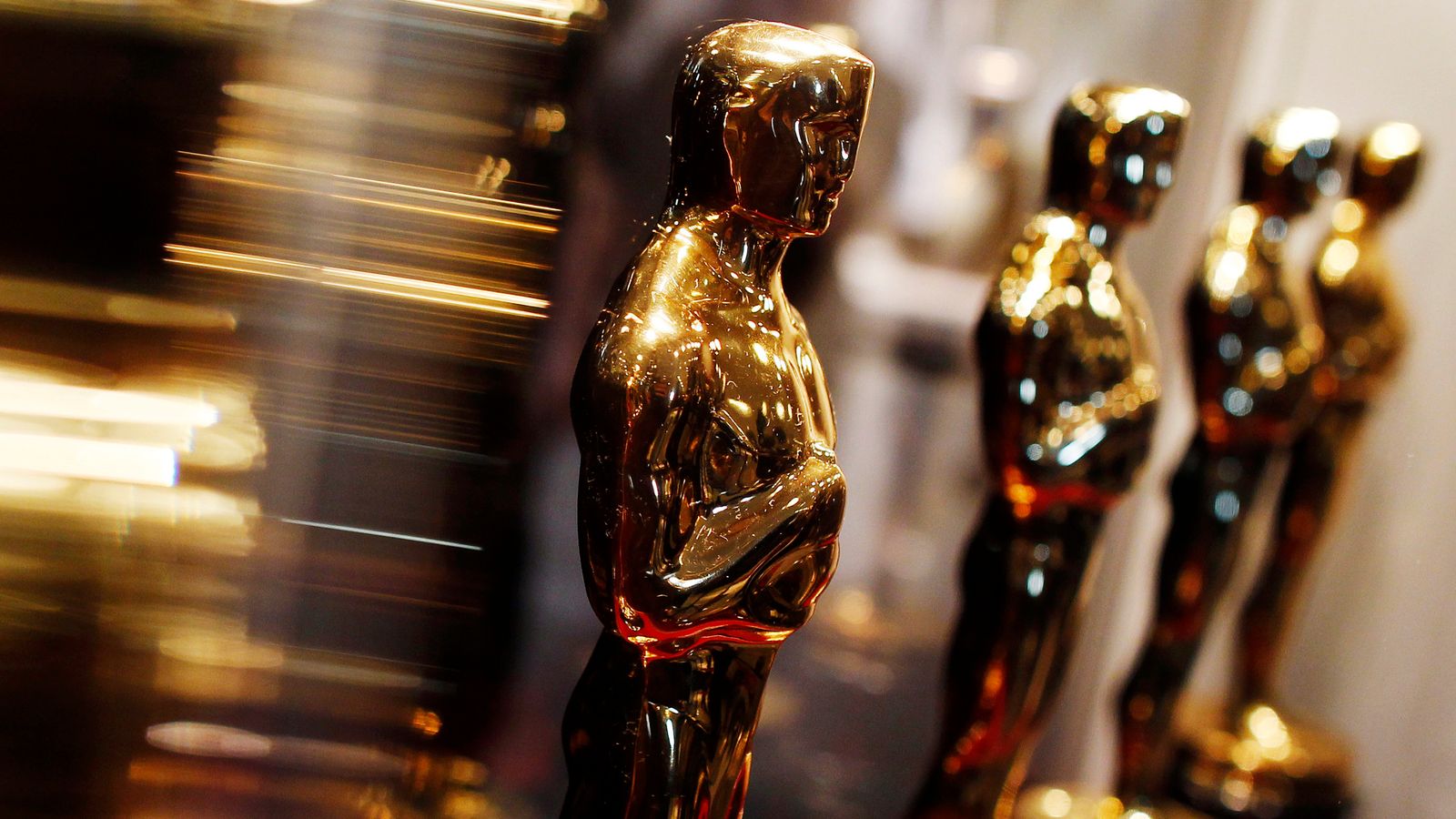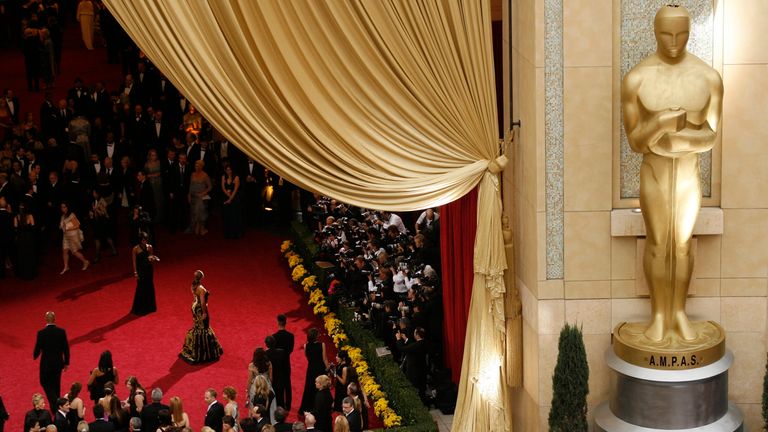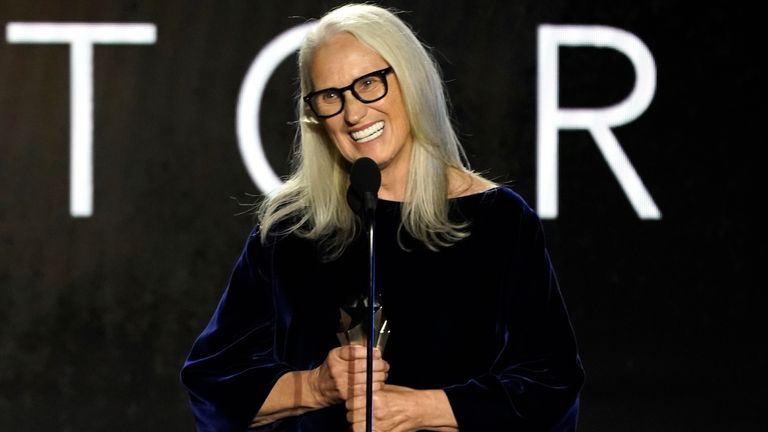They can seem frivolous and out of touch but this is why the Academy Awards still matter
A little later than usual but it’s that time again.
First class cabins packed full of studio execs, dressed-down celebs going incognito, and their stressed-out stylists, all making their way to Los Angeles for the annual Academy Awards.
They care…but do you?
As hardened reporters board flights towards Ukraine to shed light on the unfolding war, entertainment journalists – myself included – are heading over the Atlantic, ready to report on a ceremony that recorded its worst TV ratings last year. It feels a bit weird.
Only 10.4 million people tuned in to watch 2021’s subdued ceremony as it awkwardly navigated the challenges of a global lockdown. Let’s face it, if you can’t get viewers when they’re trapped in their homes, when can you?
This year normal – in-person – service has resumed. The ceremony is back at Hollywood’s Dolby Theatre. The red carpet will be packed. Clearly handing out a bit of silverware pales in significance to a war but, attempting to put that to one side, it is the perennial argument – for most people, are the Oscars still relevant?
Popular vs obscure
On social media invariably there is always a steady backlash towards Best Picture nominees being too obscure, with tweets proclaiming “The Power Of The…what?”.
Netflix doesn’t release its streaming figures so it’s impossible to know exactly how many people have seen Jane Campion’s revisionist Western, which leads the way with 12 nominations, but guaranteed it won’t be anywhere near the number who saw Spider-Man: No Way Home, which is only up for visual effects.
Of course the remit of an “academy” isn’t about being popular. It’s to teach. Naturally though, in championing films like Ryusuke Hamaguchi’s Drive My Car over the likes of No Time To Die it automatically finds itself at odds in trying to stage a show that viewers will actually tune in for.
Which is why, this year, the Oscars has valiantly attempted to appeal to the popular mainstream by introducing its “fan favourite” prize.
Reaching out to the mainstream
But, like the confused elder it is, attempts to persuade young people to get on board haven’t exactly gone to plan.
Allowing people to vote 20 times a day for two weeks left the category wide-open to manipulation from motivated fan bases, resulting in the Oscars’ very own Boaty McBoatface moment, with some truly bad films (like Camila Cabello’s Cinderella) at one stage ending up in contention.
Less is more
At four, sometimes four-and-a-half hours, without question, the biggest problem organisers have is that watching the ceremony is a slog, so – in an attempt to make proceedings more palatable – the academy has taken the somewhat brutal decision of cutting the craft categories from its live show this year. Pre-recording eight awards – basically the ones with the winners you won’t recognise, things like editing and sound.
Prioritising airtime for the famous faces will obviously make for a show that’s much more appealing to the average viewer but for those who care most – film fans, and the industry itself – it hasn’t gone down well, with the likes of Stephen Spielberg quoted as saying: “All of us make movies together…one craft is just as indispensable as the next.”
But should the academy really be bowing to pressure to come up with a hipper way of handing out statuettes? This year you’ll see performances by Travis Barker, Billie Eilish and Beyoncé, and awards handed out by DJ Khalid. Will it deliver the bump in the ratings they’re hoping for? Arguably it’s a measure we really shouldn’t focus on.
Starting conversations
On social media the ripple effect of how the Oscars is consumed extends far wider than the show itself, from meme’d moments like Ellen’s selfie, to raging debates over who should or shouldn’t have won.
And in that respect, rather than focus on the TV figures, the academy could do with owning what it’s doing well. Whether people are enraged or elated, when they find out the winners online its reach is vast. It remains a key part of the global cultural conversation.
It’s unlikely to ever again attract the 40 million viewers it used to, but if the buzz generated still results in a huge financial boost for the nominees and associated studios, perhaps it doesn’t matter if no one bothers to sit through the whole ceremony.
Honouring the underdog
Crucially the Oscars’ strength lies in its power to lift up the little films, offering a platform like no other.
Take CODA for instance, the story of a hearing daughter from a deaf family who wants to pursue a music career – authentically cast and revolutionary in the insights it offers into deaf culture. It might just deliver a shock win this Sunday and take the Best Picture prize from the consistent favourite The Power Of The Dog. But whether it wins or not isn’t really the point – it’s already broken boundaries and, without the Oscars getting its name out there, far fewer people would have seen it.
They have form on this. Think Hurt Locker swiping Best Picture from Avatar, Moonlight beating La La Land and Parasite proving victorious over 1917.
Yes they can seem frivolous and frothy, out of touch and obscene. Yes they can go on a bit. But the Academy Awards absolutely still matter.
You can watch the 94th Academy Awards on Sunday 27 March exclusively on Sky Cinema from 11pm – and follow our live blog on the Sky News website and app. For those not wanting to stay up late, you can watch again on Monday 28 at 7pm on Sky Cinema or from 10pm on Sky Showcase
For all the latest entertainment News Click Here




